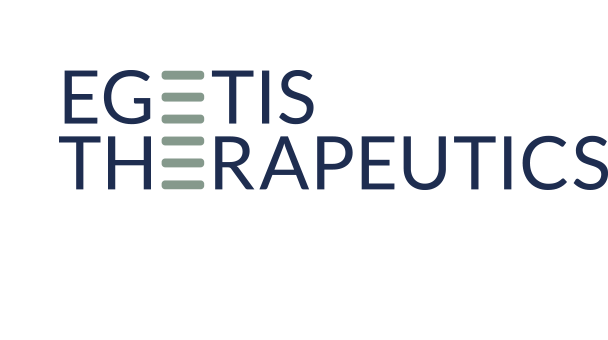Egetis Therapeutics to Feature MCT8 Deficiency on Behind the Mystery Airing on Lifetime in Honor of Rare Disease Day
February 20, 2025
Stockholm, Sweden, February 20, 2025 — Egetis Therapeutics AB (publ) (“Egetis” or the “Company”) (Nasdaq Stockholm: EGTX), an innovative pharmaceutical company specializing in late-stage development and commercialization of treatments for serious diseases with significant unmet medical needs in the orphan drug segment will be featured on Behind the Mystery™, a TV series in the U.S. that airs on the morning talk show The Balancing Act®. Sponsored by Egetis, this episode will raise awareness for Rare Disease Day, observed on February 28, and highlight MCT8 deficiency.
Spotlighting the real-life stories of MCT8 deficiency patients and their caregivers, the episode will feature the journey to diagnosis, burden of disease and need for treatment options, along with insights from Andrew J. Bauer, MD, Endocrinologist and Medical Director, Children’s Hospital of Philadelphia; Larry A. Fox, MD, Jacksonville Chief, Pediatric Endocrinology and Diabetes, Nemours Children’s Health; Jennifer Favre, Board Member, MCT8-AHDS Foundation; and Anny Bedard, President North America, Egetis Therapeutics. Egetis recently obtained marketing approval in the European Union for Emcitate® (tiratricol) for the treatment of MCT8 deficiency, but the drug is not approved in the U.S.
“Egetis is driven by three key pillars: Courage, Commitment and Collaboration,” said Bedard. “We have the courage to tackle hard conditions like MCT8 deficiency, commitment to uphold the highest ethical standards, and value ongoing collaboration with MCT8-AHDS Foundation and The Balancing Act to heighten awareness and understanding of MCT8 deficiency. Currently, there are no approved medicines for MCT8 deficiency in the United States, creating a high unmet need we’re diligently working to address.”
“Educating people about the signs and symptoms of MCT8 deficiency, as well as the journey of patients like my son Colton is critically important,” added Favre. “On Rare Disease Day and every day, MCT8 deficiency is a devastating disease in need of community recognition, support, resources, and, most of all, a treatment.”
The Behind the Mystery MCT8 deficiency episode will air on February 24 and March 3. For more information about MCT8 deficiency and a link to a replay, please visit MCT8deficiency.com.
About Behind the Mystery™
Behind the Mystery™ is a recurring series on The Balancing Act® television show devoted to advocating for rare and genetic diseases. The series clarifies the often-complex issues by offering easy-to-understand explanations from top experts in the field through partnerships with foundations and pharmaceutical companies. We amplify the voices of patients, families, and advocates affected by rare diseases via our national television platform. Tune in to Behind the Mystery weekdays at 7:30 a.m. (ET/PT) on Lifetime® and find all previously aired episodes on TheBalancingAct.com/rare.
About MCT8-AHDS Foundation
The MCT8-AHDS Foundation is made up of a group of passionate parents and 100% volunteer-based. We are striving to improve the quality of life and potential of our children; support hundreds of families around the world; share hope for a brighter future; learn from our collective experiences; and raise awareness of this ultra-rare condition with doctors, researchers, and the general public. Our children with MCT8-AHDS have many challenges to overcome, but we are stronger facing these together. To learn more, please visit https://www.mct8.info/.
About MCT8 Deficiency
Monocarboxylate transporter 8 (MCT8) deficiency is caused by mutations in the gene for MCT8. The resulting dysfunction of MCT8 leads to impaired transport of thyroid hormone into certain cells and across the blood-brain-barrier and disruption of normal thyroid hormone regulation. Patients with MCT8 deficiency therefore have low concentrations of thyroid hormone in the central nervous system and increased concentrations of active thyroid hormone T3 in peripheral tissues. This leads to a complex pattern of symptoms with neurological developmental delay and intellectual disability. The elevated circulating thyroid hormone T3 concentrations are harmful for tissues not dependent on MCT8 for thyroid hormone transport, including the heart, muscle, liver and kidney and results in symptoms such as failure to thrive, cardiovascular stress, insomnia and muscle wasting. The consequence of the chronic thyrotoxicosis is considered to contribute to the increased mortality and shortened life expectancy observed in this patient group, with a median life expectancy of 35 years. At present there is no approved therapy available for the treatment of MCT8 deficiency in the U.S. For more information, please visit MCT8deficiency.com.
About Rare Disease Day
Since its creation in 2008, Rare Disease Day has played a critical part in building an international rare disease community that is multi-disease, global, and diverse – but united in purpose.
Rare Disease Day is observed every year on 28 February (or 29 in leap years)—the rarest day of the year.
Rare Disease Day was set up and is coordinated by EURORDIS and 65+ national alliance patient organisation partners. Rare Disease Day provides an energy and focal point that enables rare diseases advocacy work to progress on the local, national and international levels.

